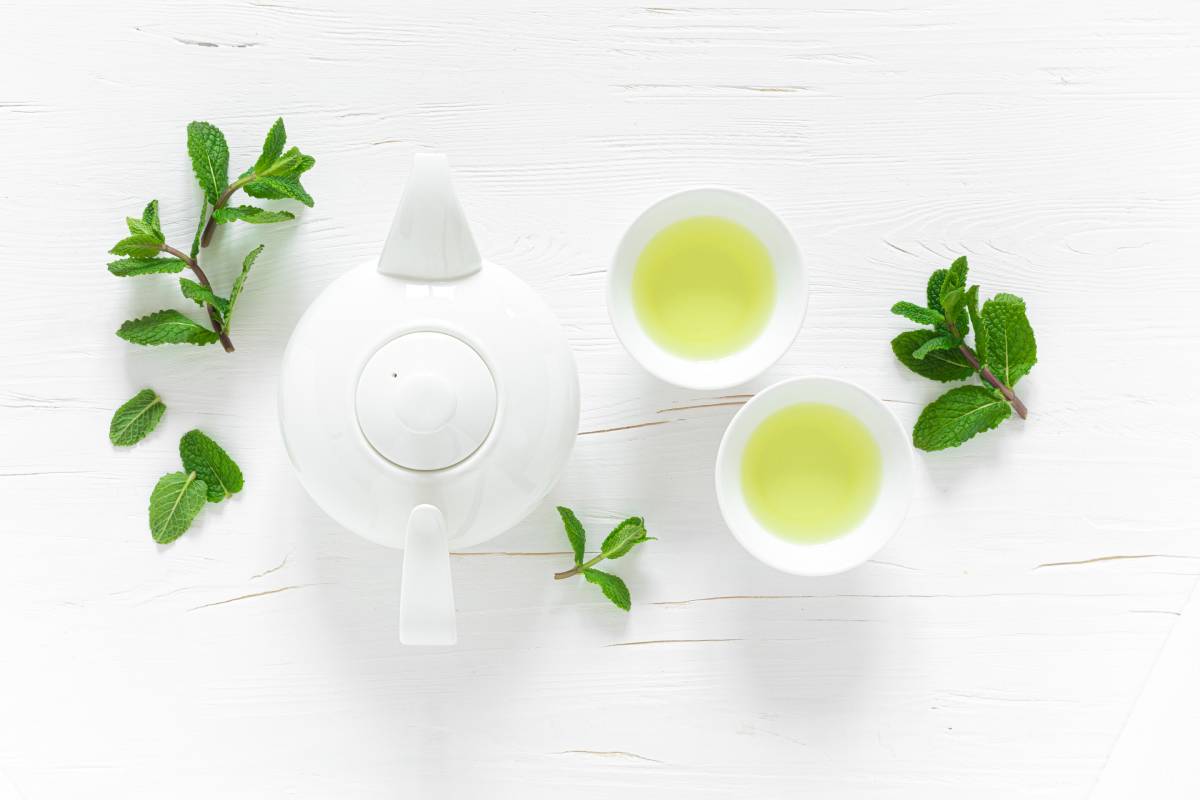Green tea, a beverage cherished for its taste and cultural significance, also packs a punch in the health department. Exploring its various types and benefits sheds light on the potential positive impacts it can have on our well-being.

What are the 5 benefits of green tea?
- Rich in Antioxidants: Green tea is loaded with antioxidants that combat harmful free radicals in the body. These antioxidants, such as catechins, help protect cells from damage and contribute to overall well-being.
- Boosts Metabolism and Weight Loss: Drinking green tea can aid in weight management by enhancing metabolism. The combination of caffeine and antioxidants promotes fat burning and can assist in maintaining a healthy weight.
- Improves Brain Function: The caffeine in green tea not only provides a mild energy boost but also improves cognitive functions. It enhances mood, reaction time, and memory, promoting overall brain health.
- Supports Heart Health: Regular consumption of green tea has been linked to a lower risk of heart disease. It helps reduce bad cholesterol levels and improves the ratio of good to bad cholesterol, contributing to a healthier cardiovascular system.
- May Reduce the Risk of Certain Cancers: Some studies suggest that the antioxidants in green tea may have protective effects against certain types of cancer. While more research is needed, incorporating green tea into your diet could potentially lower the risk of developing certain cancers.
Incorporating green tea into your daily routine can be a simple and enjoyable way to reap these health benefits. Whether you prefer it hot or cold, the positive impacts on your overall well-being make it a valuable addition to a balanced lifestyle.

What happens if I drink green tea everyday?
Drinking green tea daily can lead to numerous positive outcomes for your health. Here’s a breakdown of the potential benefits:
- Enhanced Antioxidant Protection: Green tea is brimming with antioxidants, like catechins, which combat harmful free radicals in the body, safeguarding cells from damage and contributing to overall well-being.
- Improved Metabolism and Weight Management: Green tea has the ability to boost metabolism, facilitating weight management. The combination of caffeine and antioxidants promotes fat burning, aiding in the maintenance of a healthy weight.
- Elevated Cognitive Function: The caffeine content in green tea provides a mild energy boost and enhances cognitive functions. This can lead to improved mood, reaction time, and memory, fostering overall brain health.
- Heart Health Support: Regular green tea consumption is associated with a reduced risk of heart disease. It helps lower bad cholesterol levels and improves the ratio of good to bad cholesterol, promoting a healthier cardiovascular system.
- Potential Cancer Risk Reduction: Some studies suggest that the antioxidants in green tea may offer protective effects against certain types of cancer. While more research is needed, integrating green tea into your daily routine could potentially lower the risk of developing specific cancers.
- Better Oral Health: Green tea has natural antibacterial and antiviral properties, which may contribute to improved oral health. It can help reduce the growth of harmful bacteria, leading to fresher breath and a lower risk of infections.
- Balanced Blood Sugar Levels: Green tea may play a role in regulating blood sugar levels. Regular consumption could contribute to better insulin sensitivity, potentially lowering the risk of type 2 diabetes.
- Improved Skin Health: The antioxidants and anti-inflammatory properties in green tea may promote healthier skin. It can help combat signs of aging, reduce inflammation, and contribute to a clearer complexion.
- Reduced Stress and Anxiety: The amino acid L-theanine in green tea has calming effects, promoting relaxation and reducing stress and anxiety levels.
- Enhanced Exercise Performance: The combination of caffeine and antioxidants in green tea can improve physical performance by mobilizing fatty acids from the fat tissues, making them available for energy use.
Incorporating green tea into your daily routine can be a simple and enjoyable way to reap these health benefits. Whether you choose to savor it hot or cold, making green tea a part of your lifestyle can positively impact your overall well-being.

What is the most health beneficial green tea?
- Matcha Tea: Recognized for its high concentration of antioxidants, matcha is a powdered green tea that contains the entire tea leaf.
- Sencha Green Tea: As one of the most popular green teas in Japan, sencha undergoes minimal processing. It retains a robust flavor and high levels of catechins. Its versatility and rich antioxidant content make it a health-conscious choice.
- Dragon Well (Longjing): This Chinese green tea boasts a smooth, chestnut-like flavor. Known for its high catechin content, it offers potential health benefits, including antioxidant protection and cardiovascular support.
- Gyokuro Green Tea: Grown in the shade, gyokuro has a unique flavor profile and a higher concentration of chlorophyll. This shading process increases the amino acid content, particularly L-theanine, known for its relaxing and stress-reducing properties.
- Hojicha Green Tea: Unlike other green teas, hojicha undergoes roasting, giving it a distinct toasty flavor. The roasting process reduces the caffeine content while enhancing antioxidant levels. It’s a milder option for those sensitive to caffeine.
- Genmaicha (Brown Rice Tea): Combining green tea with roasted brown rice, genmaicha has a nutty flavor and reduced caffeine levels. It provides a blend of antioxidants from both green tea and rice, offering a unique health profile.
- Gunpowder Green Tea: Rolled into small pellets resembling gunpowder, this Chinese green tea maintains its freshness for an extended period. It contains a robust flavor and retains a high concentration of catechins, contributing to its potential health benefits.
- Bancha Green Tea: Harvested from mature tea leaves, bancha is lower in caffeine compared to other green teas. It offers a milder taste while still providing a range of antioxidants and potential health advantages.
When choosing the most health-beneficial green tea, consider your taste preferences and health objectives. Incorporating any of these varieties into your routine can contribute to a range of potential health benefits, from antioxidant protection to cardiovascular support and relaxation. Experiment with different types to discover the one that aligns best with your personal preferences and health goals.

Conclusion:
In conclusion, the diverse world of green tea offers an array of options, each with its unique health benefits. Whether you opt for the robust antioxidants of matcha, the simplicity of sencha, or the calming effects of gyokuro, incorporating green tea into your routine can be a delightful and health-conscious choice. So, sip your way to well-being with the green tea that aligns best with your preferences and health goals






